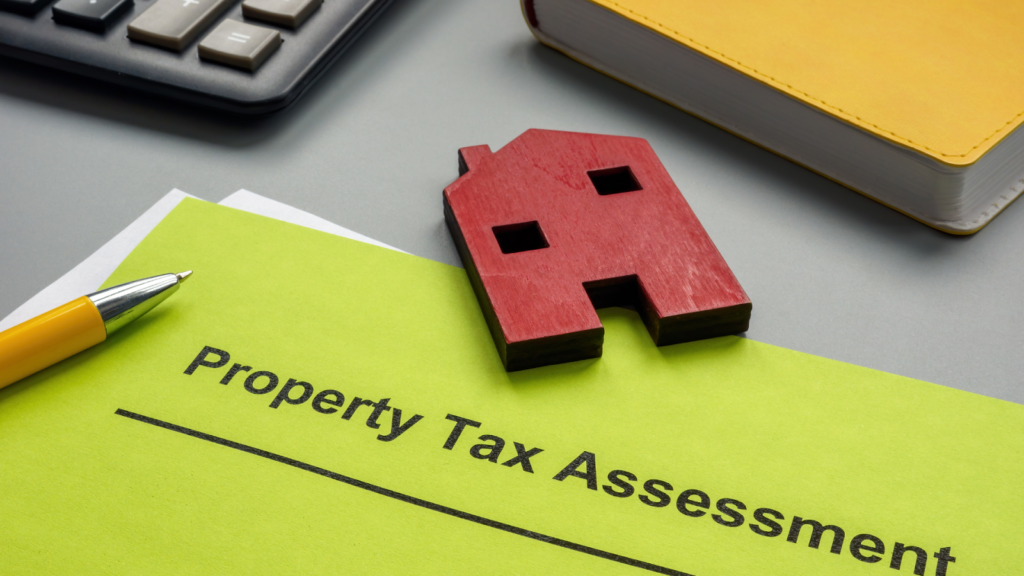A Homeowner’s Guide To Tarrant County Property Taxes
April 10, 2025
Key Takeaways:
- Property Tax Calculation: Tarrant County property taxes are based on your home’s assessed value, local tax rates, and applicable exemptions.
- Tax Protest Process: Homeowners can challenge their property’s appraisal through the Tarrant Appraisal District (TAD) to potentially lower tax costs.
- Icon Property Tax Advantage: With zero upfront fees, trusted experts handle your appeal, and you only pay when you save on property taxes.
Are you paying too much in Tarrant County property taxes? Home values keep rising, and many homeowners end up overpaying because their property is overvalued. The good news is, you have the right to challenge your home’s appraisal and possibly lower your tax bill. But most homeowners don’t know how—or don’t have the time—to fight back.
Here at Icon Property Tax, we help homeowners cut their property tax costs by challenging unfair assessments. Our local tax experts know the Tarrant County system inside and out. We use real market data and proven strategies to fight for the lowest possible tax value. And the best part? You pay nothing upfront.
This guide will break down how Tarrant County property taxes work, how to protest your appraisal, and how Icon Property Tax can help you save money—all with zero risk to you. Let’s get started!
Property Taxes In Tarrant County
Tarrant County property taxes are based on the assessed value of your home, determined annually by the Tarrant Appraisal District (TAD). Local government entities, including school districts and city councils, set tax rates that apply to this value. Your property tax bill is calculated using the formula: Assessed Value × Tax Rate – Exemptions. Texas homeowners can benefit from exemptions like homestead, senior, disability, and veteran exemptions to lower their tax burden.
If you believe your home’s appraisal is too high, you have the right to protest your property value and potentially lower your taxes. Icon Property Tax makes the process easy with zero upfront fees and trusted local tax agents who fight to reduce your assessment. With our performance-based model, you only pay when you save—No Savings, No Fee – Simple As That!
The Benefits Of Homeownership In Tarrant County
Owning a home in Tarrant County is not just about having a place to live—it also comes with financial benefits that can help you save money on property taxes. By understanding and utilizing these benefits, you can reduce your annual tax burden:
Homestead Exemption Helps Lower Your Taxable Value
The homestead exemption is a major tax benefit for homeowners who designate their Tarrant County property as their primary residence. This exemption lowers the taxable value of your home, reducing your annual tax bill. Additional exemptions apply for seniors, disabled homeowners, and veterans, offering even greater savings.
Tax Caps Prevent Unmanageable Annual Increases
Property tax caps limit the annual increase in a home’s taxable value, preventing sudden and steep tax hikes. This protects homeowners from drastic financial strain and ensures predictable tax bills year after year. The cap is especially beneficial for long-term homeowners facing rising property values.
Exemptions For Seniors, Disabled Homeowners, And Veterans
Tarrant County provides extra exemptions for homeowners aged 65 and older, those with disabilities, and qualifying veterans. These exemptions significantly reduce the amount of taxes owed and offer long-term relief for individuals who need it most, making homeownership more affordable over time.

Receiving Your Property Tax Bill
Understanding your Tarrant County property tax bill is essential to avoid overpaying or facing penalties. Your tax bill details your property’s assessed value, taxable value, and local tax rates. Here’s what you need to know:
Assessed Value And Tax Calculation
The Tarrant Appraisal District (TAD) determines your property’s market value each year, which serves as the basis for your tax bill. This assessed value, combined with the tax rates set by local entities, determines the amount you owe in property taxes.
Exemptions And Taxable Value
Exemptions, such as the homestead, senior, and disability exemptions, reduce your taxable value and lower your total tax liability. If you qualify for these exemptions, your tax bill should reflect these reductions. Reviewing your bill ensures all eligible exemptions are applied.
Due Date And Late Penalties
Tarrant County property taxes must be paid by January 31st of the following tax year to avoid penalties and interest. Missing this deadline results in increasing fees, which can lead to legal consequences if left unpaid for an extended period.
Property Tax Protests And Adjustments
If you believe your assessed value is too high, you can file a property tax protest with TAD. A successful protest can result in a lower property valuation, which reduces your tax burden before the bill becomes final and payment is due.
How To Protest Your Property’s Appraisal
If your property’s assessed value seems too high, you can file a protest to lower your taxable value and reduce your property taxes:
- Review Your Notice of Appraised Value: Tarrant Appraisal District (TAD) sends an annual notice with your property’s assessed value. Check for errors, inconsistencies, or overvaluation that may increase your taxes.
- File a Protest: You must submit a protest to the Appraisal Review Board (ARB) by May 15th or 30 days after receiving your appraisal notice to qualify.
- Gather Supporting Evidence: Strong evidence includes recent comparable property sales, photos of damages, repair estimates, and other documents proving your home’s market value is overestimated.
- Attend the ARB Hearing: During the hearing, you present your case. The ARB reviews your evidence and determines if your assessed property value should be lowered.
- Appeal the Decision (If Necessary): If unsatisfied with the ARB’s ruling, you can appeal to district court. However, this process can be time-consuming and expensive.
Here at Icon Property Tax, we manage the entire protest process, ensuring you never overpay. Only pay when you save!
How Icon Property Tax Can Help
Navigating Tarrant County property taxes can be challenging, but with the right support, you can significantly reduce your tax burden. Icon Property Tax specializes in helping homeowners fight unfair property tax assessments and maximize their savings. Here’s how we assist you:
Expert Knowledge Of The System
Understanding Tarrant County’s property tax system requires experience and insight into local appraisal methods. Our team knows how to challenge inflated property valuations, present compelling evidence, and negotiate with the Appraisal Review Board to ensure homeowners receive a fair and accurate assessment.
Zero Upfront Fees
We believe in risk-free savings, which is why we charge no upfront fees for our services. Homeowners only pay if we successfully lower their property taxes, ensuring that the entire process remains cost-effective, transparent, and focused on delivering real financial relief.
Proven Track Record
With years of experience, we have helped thousands of homeowners reduce their tax burden through successful protests. Our extensive knowledge of local property tax trends, market conditions, and effective negotiation strategies allows us to secure the best possible outcomes for our clients.
Hassle-Free Process
Handling a property tax protest can be time-consuming and complex, but we manage the entire process for you. From gathering evidence to filing paperwork and attending hearings, we ensure that homeowners receive a stress-free experience while maximizing potential tax savings.
No Savings, No Fee – Simple As That!
At Icon Property Tax, we believe that homeowners should never overpay due to an unfair appraisal. With a 25% performance-based fee, you only pay if we secure a reduction, making tax savings straightforward, risk-free, and completely hassle-free.
The Property Tax Protest Process With Icon Property Tax
The property tax protest process can be complex, but Icon Property Tax simplifies it by handling everything for you, ensuring maximum savings:
- Free Consultation: Our team reviews your property’s assessed value, determining whether a protest is necessary to reduce your Tarrant County property tax bill.
- Gathering Evidence: We collect crucial documents, including comparable sales data and property condition reports, to build a compelling case for your tax reduction.
- Filing Your Protest: We submit the necessary paperwork to the Tarrant Appraisal District (TAD) and handle all deadlines on your behalf.
- Representation at Your Hearing: Our trusted local tax agents present your case before the Appraisal Review Board (ARB) to negotiate a lower assessed value.
- Results & Savings: If successful, your reduced tax bill reflects the new assessed value, ensuring long-term savings and a fair property tax burden.
Our performance-based fee ensures no savings, no fee, making it a risk-free way to lower your Tarrant County property taxes.

Final Thoughts
Managing Tarrant County property taxes doesn’t have to be stressful or complicated. With the right strategy, you can ensure you’re not overpaying due to an inflated property assessment. Taking advantage of exemptions, understanding the protest process, and working with experienced professionals can make a significant difference in lowering your tax burden. A well-handled property tax protest can save you thousands over time, making it essential to review your assessment each year. Ignoring an overvaluation could mean paying more than your fair share in property taxes.
Frequently Asked Question About Tarrant County Property Taxes
What is the property tax rate in Tarrant County?
The Tarrant County property tax rate varies based on the city, school district, and other local taxing entities that levy taxes in your area. Each year, these rates are set by local governments and directly impact the total amount owed on your property tax bill.
How can I find my property’s assessed value in Tarrant County?
You can check your property’s assessed value by visiting the Tarrant Appraisal District (TAD) website and searching by your address or account number. The assessed value is determined annually based on market conditions, recent comparable home sales, and any improvements made to your property.
When are property taxes due in Tarrant County?
Tarrant County property taxes are due upon receiving your tax bill, but the deadline to pay without penalty is January 31st of the following year. If you miss this deadline, penalties and interest start accumulating on February 1st, increasing your overall tax liability.
How do I pay my property taxes in Tarrant County?
You can pay your property taxes online through the Tarrant County Tax Assessor-Collector’s website, by mailing a check to the tax office, in person at authorized tax offices, or over the phone. The county offers multiple payment options, including installment plans for eligible homeowners.
What happens if I don’t pay my property taxes on time?
If you fail to pay your property taxes by the deadline, interest and penalties will begin accruing each month, making your tax bill more expensive. Continued non-payment can result in a tax lien on your home, legal action from the county, or even foreclosure in extreme cases.
Can I appeal my property’s assessed value in Tarrant County?
Yes, homeowners can appeal their property’s assessed value by filing a protest with the Tarrant County Appraisal Review Board (ARB) before May 15th or 30 days after receiving the appraisal notice. Protesting can help lower your tax burden if your home is overvalued.

